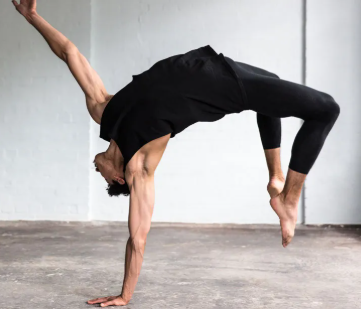Confidence is often seen as an external quality, something we display in our words, actions, or achievements. Yet true confidence begins within, rooted not in bravado but in a quiet inner steadiness. Calm awareness is one of the most effective ways to cultivate this inner strength. By observing ourselves and the world around us with mindfulness, we develop clarity, self-assurance, and resilience. Unlike confidence that relies on validation from others, confidence born of calm awareness is steady, enduring, and deeply liberating.
Calm awareness starts with noticing the present moment. Often, a lack of confidence is fueled by an overactive mind—one that dwells on past mistakes or worries about the future. By gently bringing attention to the here and now, we interrupt this cycle. This practice does not require us to stop thinking entirely, but rather to become aware of our thoughts without being swept away by them. Simply observing our mind’s activity allows us to respond to challenges with clarity instead of reacting impulsively. This clarity is the first step in building authentic confidence.
Breath awareness is one of the simplest and most powerful tools for developing calm awareness. Focusing on the rhythm of the breath helps anchor the mind, providing a stable foundation from which to face life’s uncertainties. When you notice tension or self-doubt arising, pause and take a few slow, deep breaths. Feel the air filling your lungs and leaving your body. This intentional focus on breathing signals to both mind and body that you are present, capable, and grounded. Over time, this practice strengthens the mind’s ability to remain composed in stressful situations, fostering confidence that is steady rather than reactive.
Another aspect of calm awareness involves observing your thoughts with gentle curiosity. Many people mistake their thoughts for reality, believing that worries or self-critical ideas define who they are. Through mindful observation, you learn to see thoughts as passing events rather than absolute truths. This realization reduces self-doubt and builds a sense of personal authority. When you recognize that your thoughts do not control you, you gain freedom and confidence to make conscious choices aligned with your values.
Building confidence through calm awareness also includes cultivating self-compassion. Inner criticism is often a hidden barrier to self-assurance. By treating yourself with kindness, especially in moments of difficulty, you reinforce a sense of worth and capability. For instance, instead of harshly judging a mistake, you might acknowledge it with understanding: “I am learning. This is a step forward.” This gentle approach allows you to maintain confidence even when things do not go perfectly. Calm awareness and self-compassion together create a resilient foundation from which confidence can grow.
Body awareness is another dimension of building confidence. Tension in the body often reflects tension in the mind. By bringing attention to sensations in the body, we can release stress and stand more fully in our presence. Simple practices, such as feeling your feet on the ground, noticing the alignment of your posture, or softening tight areas, help reinforce a sense of stability. When your body is grounded, your mind feels anchored, and confidence naturally follows. Calm awareness bridges the gap between inner experience and outward presence, making confidence more authentic and accessible.
Mindful reflection on past successes also enhances confidence. Calm awareness allows you to recall moments when you navigated challenges effectively, solved problems creatively, or acted with courage. By observing these experiences without exaggeration or judgment, you reinforce a positive sense of capability. This reflection is not about arrogance; it is about acknowledging your own competence and using that awareness as a foundation for future growth. The mind begins to internalize the truth that you have handled difficulties before and are capable of handling them again.
Daily habits that support calm awareness can transform confidence over time. Short meditation sessions, mindful breathing during pauses in the day, or simply taking a few moments to observe your surroundings all contribute to a centered mindset. The more consistently you cultivate awareness, the more natural it becomes to approach challenges with poise and self-assurance. Confidence is strengthened in small, repeated moments rather than through occasional grand displays.
It is also important to approach calm awareness with patience. Confidence does not develop instantly; it grows gradually, like a plant nurtured by sunlight and water. Some days, the mind may feel scattered, anxious, or doubtful. These moments are not setbacks—they are part of the process. By returning to calm awareness without judgment, you reinforce resilience and deepen your sense of self-trust. Each moment spent observing your mind, body, and emotions with clarity strengthens your foundation of confidence.
Interpersonal experiences can also benefit from calm awareness. When you listen fully, without rushing to respond or reacting impulsively, you demonstrate attentiveness and presence. This awareness not only improves communication but also reinforces internal confidence. You begin to trust your capacity to handle interactions with clarity and composure. Calm awareness allows you to engage authentically with others, rather than relying on external validation to feel secure.
The benefits of calm awareness extend to decision-making as well. A mind that is grounded and observant is less likely to be swayed by fear, doubt, or impulsive reactions. By noticing thoughts and emotions as they arise, you create space to respond thoughtfully rather than reflexively. Decisions made from this centered place carry a sense of certainty and integrity, which strengthens both personal and professional confidence.
Ultimately, confidence through calm awareness is about living with intentional presence. It is the understanding that being grounded in the moment allows you to access your inner resources, face challenges with clarity, and act from a place of authenticity. This form of confidence does not depend on comparison, achievement, or external approval. It is rooted in the quiet knowing that you are capable, resilient, and worthy, regardless of circumstance.
To cultivate this confidence, begin with small, consistent practices. Set aside a few minutes each day for mindful breathing, body awareness, or reflection on your thoughts. Notice when self-doubt arises and meet it with curiosity rather than fear. Observe your past accomplishments with gentle recognition and allow these moments to remind you of your competence. Over time, these practices build a natural, unshakable confidence that emerges from stillness rather than striving.
Calm awareness transforms not only the mind but the heart. As you become more present and compassionate with yourself, your interactions with the world deepen. You approach life with steadiness, make choices with clarity, and carry a sense of self-assurance that is inspiring yet quiet. Confidence born of calm awareness is not loud or forceful—it is steady, kind, and enduring.
In the end, the path to confidence is not about perfection or constant achievement. It is about cultivating awareness, presence, and self-compassion. By observing the mind, grounding the body, and nurturing patience, you create a foundation of inner strength. Through calm awareness, you discover that true confidence is always available within, a quiet companion that grows as you pause, breathe, and meet each moment with clarity and care.






